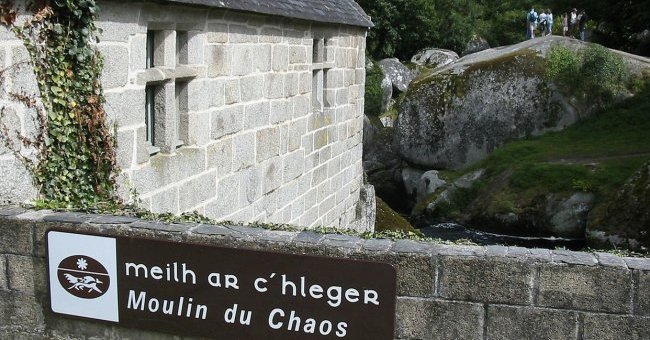OPINION. Following a recent article in our French language sister publication Le Taurillon denouncing Manuel Valls’ position on learning regional languages in France, and the responses it provoked, a deeper analysis is needed of the role that these languages play in building regional, national and especially European identity.
Some time ago, in Le Taurillon, I published an article [1] “on impulse” in response to a declaration Manuel Valls made about the role of regional languages in France. In an interview with the international Francophone channel TV5MONDE, the former French prime minister and unsuccessful candidate for mayor of Barcelona had made an explicit link between learning regional languages, like Breton, Corsican, Basque and Catalan, and attempts at “separatism” in these regions.
These are vile suggestions; they translate to a Centralist political logic that is completely outdated at a time of decentralisation and European integration, and to a very worrying conflation of terms. This came just as the French government and parliament were voting on a law on separatism, Islamist separatism in particular. The article provoked a number of reactions, positive and negative, which in my opinion is a great thing. Nonetheless, I quickly realised I needed to write another article in response to some reactions I found particularly interesting. These can be organised into two main categories: that regional languages are artificial constructs that barely reflect the cultural reality of the regions of France, and, that the promotion of regional languages can indeed encourage separatism, or at least intolerance towards French.
Manuel Valls, Centralist opportunist
Before we look at the two categories mentioned above, let us examine former prime minister Manuel Valls’ history with the subject of promoting regional languages, and, implicitly, with the autonomy of local government in France.
Manuel Valls was born in 1962 in Barcelona, in Francoist Catalonia and Spain. His native language is Catalan, a language which was repressed by those in power at that time. In his culture and his education, Valls was always immersed in multilingualism and in sensitivity to regional languages. However, much later, when he became prime minister, his position on languages and regional autonomy became much more ambiguous. When right-wing senators blocked France from ratifying the European Charter for Regional or Minority Languages in 2015, Valls expressed his regret at this decision in a speech to the National Assembly [2].
Yet that same year the territorial reform took place, a reform that many deemed harmful to regional identity, on the basis that the “macro-regions” show absolutely no consideration for local realities. The Grand Est region is a particularly striking example. This fusion of three very different regions —Champagne-Ardenne, Lorraine and Alsace— is a real cultural contradiction, and a step backwards for the principle of decentralisation.
Manuel Valls’ recent remarks demonstrate Centralist opportunism, which in addition makes it apparent that his convictions about regional languages are easily interchangeable if they facilitate his potential return to French politics.
Language, a modern construct
Language is an essential component of identity. However, the notion of language itself has greatly changed over the past few centuries. Today in France, this notion is characterised by relative homogeneity, and great ease of mutual comprehension between different speakers, despite different amounts of variation in dialect.
This homogeneity is in reality the result of a process of standardisation, through the influence of national constructs, certain religious and political dynamics, as well as the influence of mass media. The French that is spoken by tens of millions of people in Europe (and hundreds of millions around the world) is nothing more than the result of standardisation according to the norm of “français francilien” (French from the Parisian region), imported by the media in recent decades.
What has happened to French has also been the fate of a number of the regional languages in France. The one that I’m most familiar with, Alsatian, is a good example: while there are considerable dialectal differences between Northern Alsatian (‘Bas-Rhin’) and Southern Alsatian (‘Haut-Rhin’), (the traditional language of Alsace bossue is even a Rhenish Franconian dialect from Lorraine, a completely different subregion), the standard taught in schools and cultural institutions, as well as the University of Strasbourg, is derived from the aforementioned standardisation of French. This is also the case for the Breton taught in ‘Diwan’ schools, and for Corsican.
Other regional languages, however, are in a more complex situation, such as Lorraine Franconian, spoken in the north of the département of Moselle, which is divided into three very distinct dialects (Luxembourgish, Moselle Franconian, which is close to Sarrois, and Rhenish Lorraine Franconian, which is close to Alsatian). Other languages have even opted to have several official variants, such as Provençal and its sub-dialects, Alpine, Rodanenc (of the area around the Rhône), Niçard, and Maritime, itself considered a dialect of Occitan.
In conclusion, to develop and survive, a language must standardise and build a structure by eliminating the dialectal variations which hinder mutual understanding between speakers. This is just as true for French as it is for regional languages.
Inclusive identity, a concept for the future
The premise that the development of regional languages would undermine the unity of the French Republic relies on the belief that an identity is constructed in opposition to another. Some believe that one cannot be linguistically and culturally both Breton and French, for example.
I think this premise should be destroyed, for two reasons. The first concerns its nationalist connotations. The only possible choice for all French citizens’ identity would be French, disregarding local cultures and histories. Furthermore, this premise ignores the fact that multiple identities can overlap: you can be simultaneously Catalan (from the Roussillon region), French and European. A harmony that is especially desirable at a time when Europe needs to rely more and more on regions to complete integration.
Inclusive identity is not, however, just wishful thinking; it is backed up by a number of academic studies [3]. Towards the end of the 1990s, the writer Amin Maalouf described inclusive identity in these terms: “To those who ask, I explain with patience that I was born in Lebanon, lived there until the age of 27, that Arabic is my first language [...] But on another side, I have lived on the French soil for 22 years [...] Half French and half Lebanese, then? Not at all! The identity cannot be compartmentalized; it cannot be split in halves or thirds, nor have any clearly defined set of boundaries. I do not have several identities, I only have one, made of all the elements that have shaped its unique proportions.” What is true for French and Lebanese identities is just as true for Basque and Catalan identities.
There are therefore numerous arguments that can be used to support the development of regional languages and identity in France, and beyond, in the interest of forming a federalist and democratic Europe.


Follow the comments: |
|
